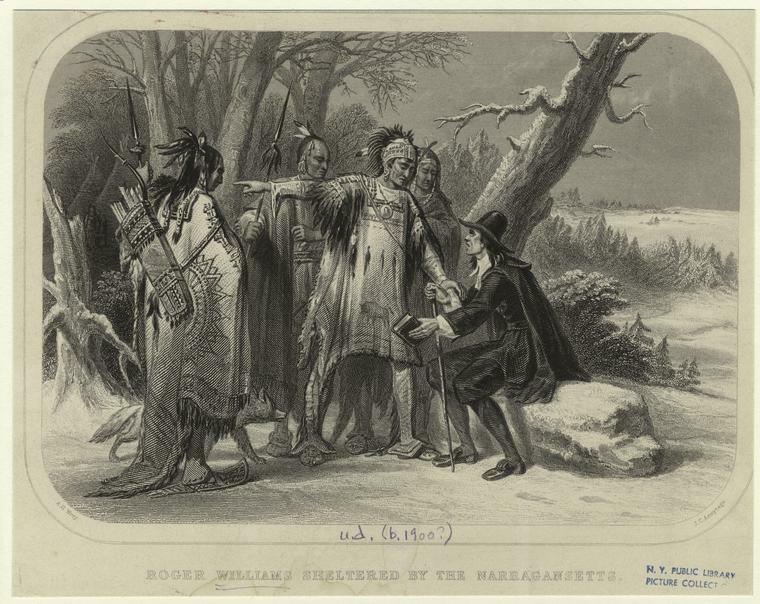Roger Williams and the foundation of Rhode Island, a haven of toleration in the seventeenth century
‘It is the will and command of God that, since the coming of his Son the Lord Jesus, a permission of the most Paganish, Jewish, Turkish, or anti-Christian consciences and worships be granted to all men in all nations and countries.God requires not a uniformity of religion to be enacted and enforced in any civil state. Enforced uniformity, sooner or later, is the greatest occasion of civil war, ravishing of conscience, persecution of Christ Jesus in his servants, and of the hypocrisy and destruction of millions of souls.’
In the 1620’s, a group of rigorous Protestants, called Puritans, settled in the region of Massachusetts (in North-east America). They intended to live according to their strict interpretation of Christianity and did not accept dissidence. In 1636 they wanted to imprison and send back to England a certain Roger Williams. Williams held some very shocking ideas according the other colonists. He, for example, argued that America belonged to the Indians and that the King of England had no right to distribute American land to the colonists. He also believed that true Christians should cut all ties with the Church of England, which he considered to be corrupt. To escape capture, Williams fled into the wilderness on a cold winter night. He was welcomed by Indians, whom he knew and had previously befriended, and lived with them for a while. They gave or sold him a piece of land in the Narragansett Bay, where Williams constituted a new colony. He called it ‘Providence’. It was the basis of what is now the state of Rhode Island in the US. In his new settlement Roger Williams started a democratic society where all men were considered equal (although women were still excluded from voting). There was religious freedom for all: people of any religious persuasion – Protestants, Catholics, Jews, ‘pagans’ (Indians), Muslims – could adhere to their faith and worship publicly. They could erect religious buildings, for example. Moreover, the civil authorities accommodated everyone’s religious beliefs, hence they could not impose or prevent specific religious behaviour. For example, they abolished Sunday rest, as this was a Christian practice. Also, anybody, whatever their beliefs (including atheists), could become a civil servant or magistrate. It was even unlawful to ask for an oath, because swearing an oath was considered a religious act. The only reasons why civil authorities could interfere in religious affairs, was if civil order was endangered or the rights of others were disrespected. Therefore, all inhabitants paid the same taxes. This degree of freedom was really revolutionary in that time, and arguably it still is.
See clipping ‘The Rhode Island Charter text’.
For more information on this and other peace treaties, see


